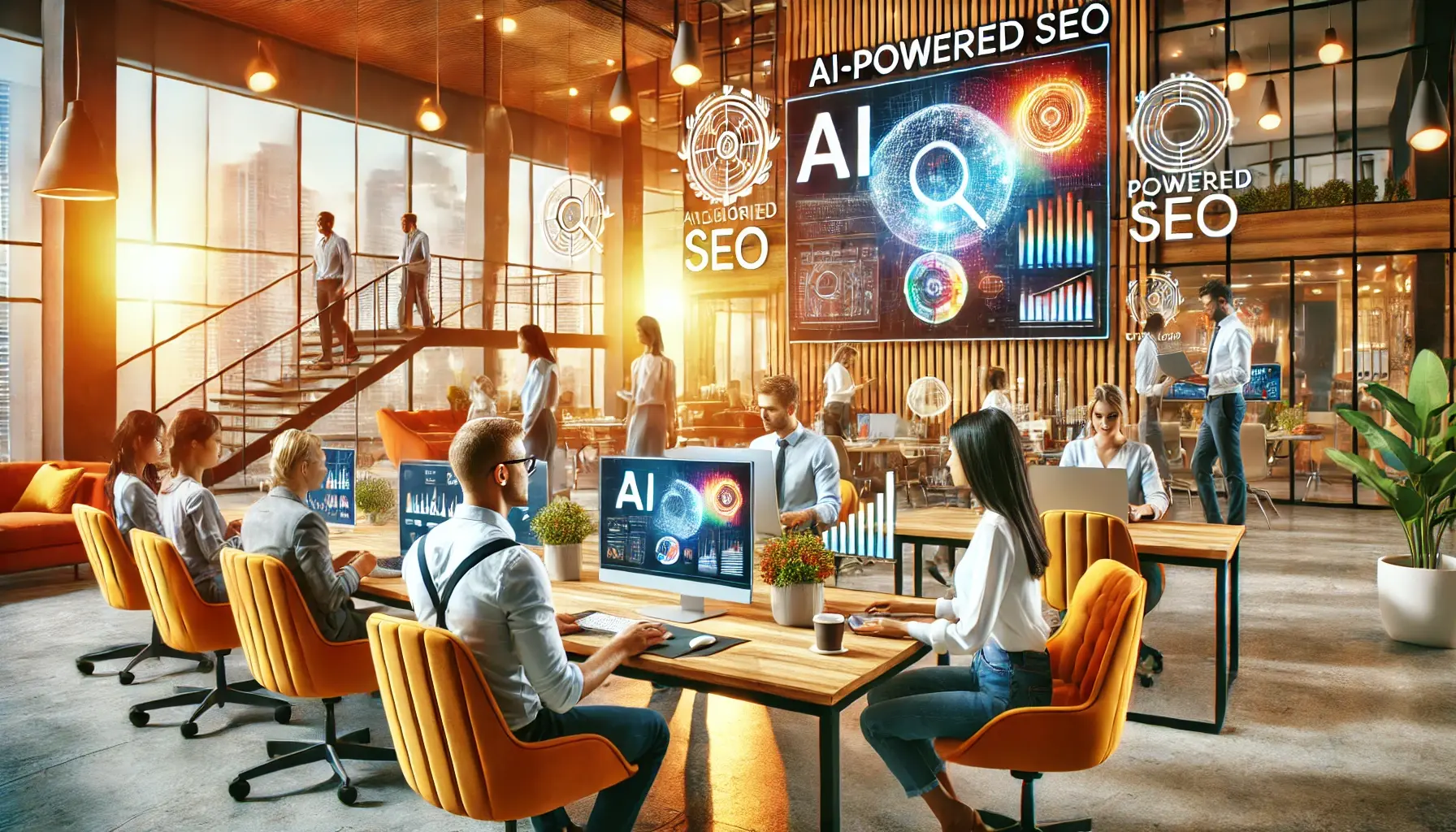5 min read
Navigating New Markets: The Role of a Market Research Analyst
Understanding Market Dynamics Understanding market dynamics is crucial for a market research analyst when navigating new markets. Market dynamics...
4 min read
![]() The Amazing Team at Focus Digital Marketing
:
Jun 3, 2024 10:15:00 AM
The Amazing Team at Focus Digital Marketing
:
Jun 3, 2024 10:15:00 AM
AI for Digital Marketing: Revolutionizing the Landscape in the USA
In today's digital age, the importance of leveraging technology to enhance marketing strategies cannot be overstated. With advancements in artificial intelligence (AI), businesses have been able to streamline their digital marketing efforts, leading to increased efficiency and effectiveness. This article aims to provide a comprehensive and detailed overview of AI for digital marketing, with a specific focus on its relevance in the United States.
Definition and Key Components of AI for Digital Marketing
Artificial intelligence, in the context of digital marketing, refers to the application of machine learning algorithms and data analytics to automate and optimize marketing strategies. It encompasses various components, including natural language processing, predictive analytics, chatbots, virtual assistants, and recommendation engines. These elements work together to gather, analyze, and interpret vast amounts of customer data, enabling organizations to make data-driven decisions and deliver personalized experiences.
Implementation Steps for AI in Digital Marketing
Implementing AI in digital marketing requires a systematic approach. Here are key steps organizations should consider:
1. Define Objectives: Determine the specific goals and outcomes you want to achieve using AI in your digital marketing efforts. These objectives could range from increasing conversion rates to improving customer engagement.
2. Data Collection: Gather relevant data from various sources, such as customer interactions, website analytics, social media, and CRM systems. This data will serve as fuel for the AI algorithms.
3. Data Preparation: Clean and pre-process the collected data, ensuring its quality and consistency. This step is crucial for accurate AI-powered insights and predictions.
4. Algorithm Selection: Choose the appropriate AI algorithms based on your marketing objectives. Popular algorithms include decision trees, neural networks, and clustering.
5. Model Development and Testing: Build and train AI models using the collected data. Test their performance against predefined metrics to ensure accuracy.
6. Implementation and Integration: Integrate the AI model into your existing marketing systems, such as email marketing platforms, CRM systems, and website analytics tools.
Benefits of AI in Digital Marketing
The integration of AI into digital marketing brings several advantages for businesses operating in the USA:
1. Enhanced Personalization: AI enables marketers to tailor their messages and offers based on individual customer preferences, leading to higher engagement and conversion rates.
2. Improved Customer Segmentation: AI algorithms can automatically segment customers based on various attributes, allowing marketers to target specific groups with personalized campaigns.
3. Real-Time Insights: AI-powered analytics provide real-time data and insights, empowering marketers to make accurate decisions promptly.
4. Automation of Repetitive Tasks: AI automates mundane and time-consuming tasks, such as data entry, report generation, and social media posting, freeing up resources for more strategic activities.
5. Increased Efficiency and Cost Savings: By automating processes and reducing manual efforts, businesses can achieve higher operational efficiency and cost optimization.
Challenges in Implementing AI for Digital Marketing
While the benefits of AI in digital marketing are significant, there are challenges that businesses may face:
1. Data Privacy and Security: AI relies heavily on data, raising concerns about privacy and security. Organizations must ensure compliance with data protection regulations and maintain adequate security measures.
2. Skill Gap: Implementing AI requires specialized skills and expertise. Businesses may need to invest in training or seek external support to bridge any skill gaps.
3. Ethical Considerations: AI algorithms should be carefully designed to avoid biases and discrimination. Businesses must consider ethical implications and ensure fairness in their AI-powered marketing strategies.
Analytics Report and Case Studies
To provide an insight into the impact of AI on digital marketing, let's explore an analytics report and a couple of case studies:
Analytics Report:
According to a report by MarketsandMarkets, the AI in the digital marketing market in the United States is expected to reach $19.6 billion by 2025, growing at a CAGR of 29.7% from 2020 to 2025. The report highlights the increasing adoption of AI technologies, such as machine learning and natural language processing, to gain a competitive edge in the rapidly evolving digital landscape.
Case Study 1: Amazon's Recommendation Engine:
Amazon, the e-commerce giant, utilizes AI-powered recommendation engines to provide personalized product recommendations to its customers. This approach has significantly contributed to Amazon's conversion rates and customer satisfaction, leading to increased sales and customer loyalty.
Case Study 2: Netflix's Content Recommendation:
Netflix uses AI algorithms to analyze user behavior, viewing patterns, and preferences to suggest personalized content recommendations. As a result, Netflix has been able to enhance its engagement levels and retain its vast subscriber base in the competitive streaming market.
Future Trends in AI for Digital Marketing
Looking ahead, AI will continue to reshape the digital marketing landscape in the United States. Some future trends include:
1. Voice Search Optimization: With the rise of virtual assistants like Siri, Alexa, and Google Assistant, optimizing digital marketing strategies for voice search will become crucial for businesses.
2. Chatbots for Customer Service: AI-powered chatbots will become more sophisticated in understanding and responding to customer queries, revolutionizing customer service experiences.
3. Hyper-Personalization: AI algorithms will advance in predicting customer preferences and behavior, enabling businesses to deliver hyper-personalized experiences across various marketing channels.
4. Augmented Reality Marketing: AI technologies combined with augmented reality will create immersive marketing experiences, allowing customers to visualize products in real-world scenarios.
5. Enhanced Data Analytics: AI will continue to refine data analytics, providing marketers with advanced insights and predictive modeling, enabling proactive decision-making.
Conclusion
AI has emerged as a game-changer in the world of digital marketing, revolutionizing how businesses in the USA strategize, execute, and optimize their marketing efforts. By leveraging the power of AI, organizations can achieve enhanced personalization, improved efficiency, and increased competitiveness. As the landscape continues to evolve, businesses must be proactive in adopting AI technologies to stay ahead in the ever-changing digital marketing realm.
Recommendation:
To further explore the potential of AI for digital marketing and stay updated with the latest trends and strategies, we recommend visiting the Focus Digital Marketing website. With comprehensive resources and insightful articles, it's a valuable platform for marketers seeking to maximize their AI-powered marketing efforts.
FAQs:
1. What is AI for digital marketing?
AI for digital marketing refers to the application of machine learning algorithms and data analytics in automating and optimizing marketing strategies, enabling businesses to deliver personalized experiences and make data-driven decisions.
2. How does AI benefit digital marketing?
AI brings several benefits to digital marketing, including enhanced personalization, improved customer segmentation, real-time insights, automation of repetitive tasks, increased efficiency, and cost savings.
3. What are the challenges in implementing AI for digital marketing?
Challenges in implementing AI for digital marketing include data privacy and security concerns, skill gaps, and ethical considerations related to biases and discrimination.
4. Can you provide an example of AI in digital marketing?
One example is Amazon's recommendation engine, which uses AI algorithms to offer personalized product recommendations based on customer behavior and preferences.
5. What are the future trends in AI for digital marketing?
Future trends in AI for digital marketing include voice search optimization, chatbots for customer service, hyper-personalization, augmented reality marketing, and enhanced data analytics.

5 min read
Understanding Market Dynamics Understanding market dynamics is crucial for a market research analyst when navigating new markets. Market dynamics...

5 min read
The Future of AI in Digital Marketing: Transforming the Landscape in the USAIntroduction:As the world continues to witness rapid technological...

4 min read
AI in Digital Marketing: Revolutionizing the Future of Advertising in the USAArtificial Intelligence (AI) has become a buzzword across industries,...